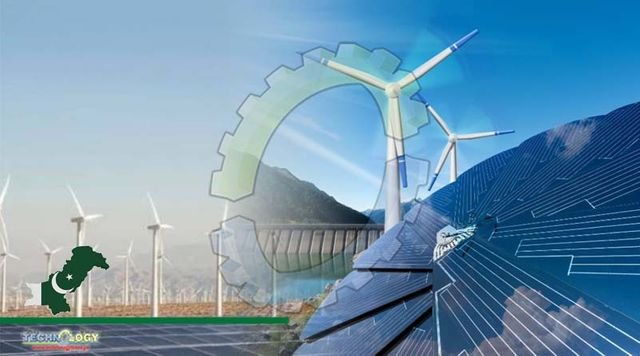In a bid to promote alternate energy resources, the Pakistan government has decided to move away from the “cost-plus” tariff regime to auction-based awards for future wind and solar power induction.

This was shared by experts during a webinar organised by Renewables First that featured experts and government officials dealing with renewable energy in Pakistan. Ammar Qaseem, a Policy Analyst at Renewables First, while presenting the white paper, discussed local and global RE tariff trends, national energy context and international best practices.
He talked about Pakistan’s national electricity policy objectives in addition to the least cost criteria which must be catered to as large chunks of RE (almost 11 GW) is procured within the next 8 years. He stressed that the planned additions are a major opportunity for Pakistan to boost local market, attract foreign investment and ensure maximum socio-economic dispersion of benefits.
Mr Aqeel Hussain Jafri, Director Policy Alternative Energy Development Board, (AEDB), acknowledged that auctions are the way Awards forward for Pakistan. He highlighted that well designed auctions provide a level playing field for local and international investors. He reiterated that the government is focused on cost reduction and shared AEDB’s plans to initiate the first bidding round by end-June. The launch of the white paper also coincided with a recent World Bank’s VRE Competitive Bidding study which provides recommendations regarding various auction models, frequency of bidding rounds and best design with regards to the local context.
While highlighting the significance of auctions for Renewable Energy procurement and the World Bank’s Awards recommendations, Oliver Knight, senior energy specialist for the World Bank’s South Asia Energy Unit, appreciated the efforts that went into preparing renewable energy’s study.
He emphasised that Pakistan should adopt a sub-station or park-based bidding in the year 2022 to meet its set targets for the term. Dr Fatima Khushnood of Engro Energy said that owing to the major transformations that the renewable energy sector was undergoing, the investors’ confidence needed to be revived.
Dr Wikus Kruger, research lead at the University of Cape Town’s Power Futures Lab, who has extensively worked on South African energy auctions, said Pakistan should start with a smaller volume in the first bidding round, and in terms of frequency, there should be consistency to avoid risks.
Sohaib Malik, principal analyst at the Wood Mackenzie, said that “with respect to Pakistan we need to identify which countries should be considered as a viable comparison as the government of a resource-deprived economy faces certain limitations in terms of what it can offer”.
Source: This news is originally published by nation
